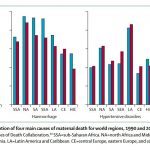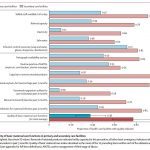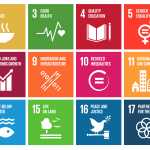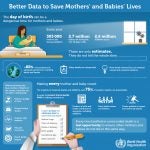On International Day of the Girl Child, we are reminded of the importance of addressing the health needs of young women and girls. In 2013, maternal disorders were the fourth leading cause of death for young girls ages 15-19, largely due to the high prevalence of early pregnancy, unsafe sex and child marriage…read more
Countdown to 2015 Becomes Countdown to 2030
Posted onCountdown to 2015 for Maternal, Newborn and Child Survival (“Countdown”) was established in 2005 in response to The Lancet Child Survival Series with the goal of monitoring countries’ progress toward achieving Millennium Development Goals 4 (reduce child mortality) and 5 (improve maternal health) by 2015. Countdown is led by a team of multi-disciplinary leaders in the maternal and child health field, including researchers, governments, international agencies, professional organizations and other stakeholders. Now that the world has adopted the Sustainable Development Goals (SDGs), Countdown has extended its work to monitor progress toward achieving SDG 3 (ensure healthy lives and promote wellbeing for all at all ages) by 2030…read more
How Good Are Our Current Measures for Maternal Health Care Quality?
Posted onThe public health community has emphasized the importance of quality of maternal health care, noting that increasing access to care alone is not sufficient for improving maternal health outcomes. Many of the maternal health quality of care indicators currently used around the world have not yet been validated, which means that we may not be measuring what really matters. Researchers have demonstrated a lack of correlation between quality measures and maternal mortality. The challenge is how to capture the quality of maternal health care in diverse settings across the globe: What factors are important, and how can those factors be measured accurately? In an effort to answer that question, the Maternal Health Task Force (MHTF) partnered with colleagues at the Population Council to evaluate current measures of maternal health care quality…read more
The Lancet Maternal Health Series: “Diversity and Divergence: The Dynamic Burden of Poor Maternal Health”
Posted onThe Lancet Maternal Health Series published last month contains six papers highlighting the importance of improving access to high quality maternal health care for all women across the globe. In paper 1, “Diversity and divergence: The dynamic burden of poor maternal health”, Graham and colleagues examine the changing distribution of causes of maternal death and disability (diversity) and the persistent inequalities between and within populations (divergence)…read more
Not All Facilities Are Created Equal: The Relationship Between Delivery Volume, Surgical Capacity and Quality of Maternal Health Care in Africa
Posted onIn a recent study published in The Lancet Global Health, Kruk and colleagues used nationally representative health system surveys to examine the quality of maternal health care provided in facilities in Kenya, Namibia, Rwanda, Tanzania and Uganda in relation to volume of deliveries and surgical capacity. Quality of care was evaluated using a set of indicators that measured the facility’s availability of 24-hour skilled staff, referral system, electricity, safe water, equipment for infection control, and ability to administer oxytocin, antibiotics and magnesium sulfate when necessary…read more
Task force advises routine preeclampsia screening in pregnancy
Posted onOne Year Anniversary of the Sustainable Development Goals (SDGs): Where Are We Now?
Posted onOne of the defining features of the SDGs is an increased emphasis on equity and data disaggregation. Whereas the Millennium Development Goals were largely focused on improving global and regional outcomes on average, the SDGs call for efforts to improve outcomes at the national and local levels with specific attention to vulnerable populations. The SDG agenda requires access to accurate, disaggregated data and data infrastructure. Strong health information systems are necessary for collecting, measuring and tracking data in order to quantify progress…read more
New Publications From the World Health Organization: Counting Maternal Deaths and Stillbirths
Posted onThe majority of stillbirths and maternal and neonatal deaths are preventable, and yet every year an estimated 303,000 mothers die during childbirth, 2.7 million babies die within the first 28 days of life and 2.6 million stillbirths occur. Particularly in countries with insufficient health information systems, many of these deaths are not recorded or reviewed. Access to accurate data on the incidence and causes of mortality is crucial for developing life-saving interventions. The World Health Organization (WHO) recently released three publications designed to help countries improve data collection on maternal and neonatal deaths…read more





